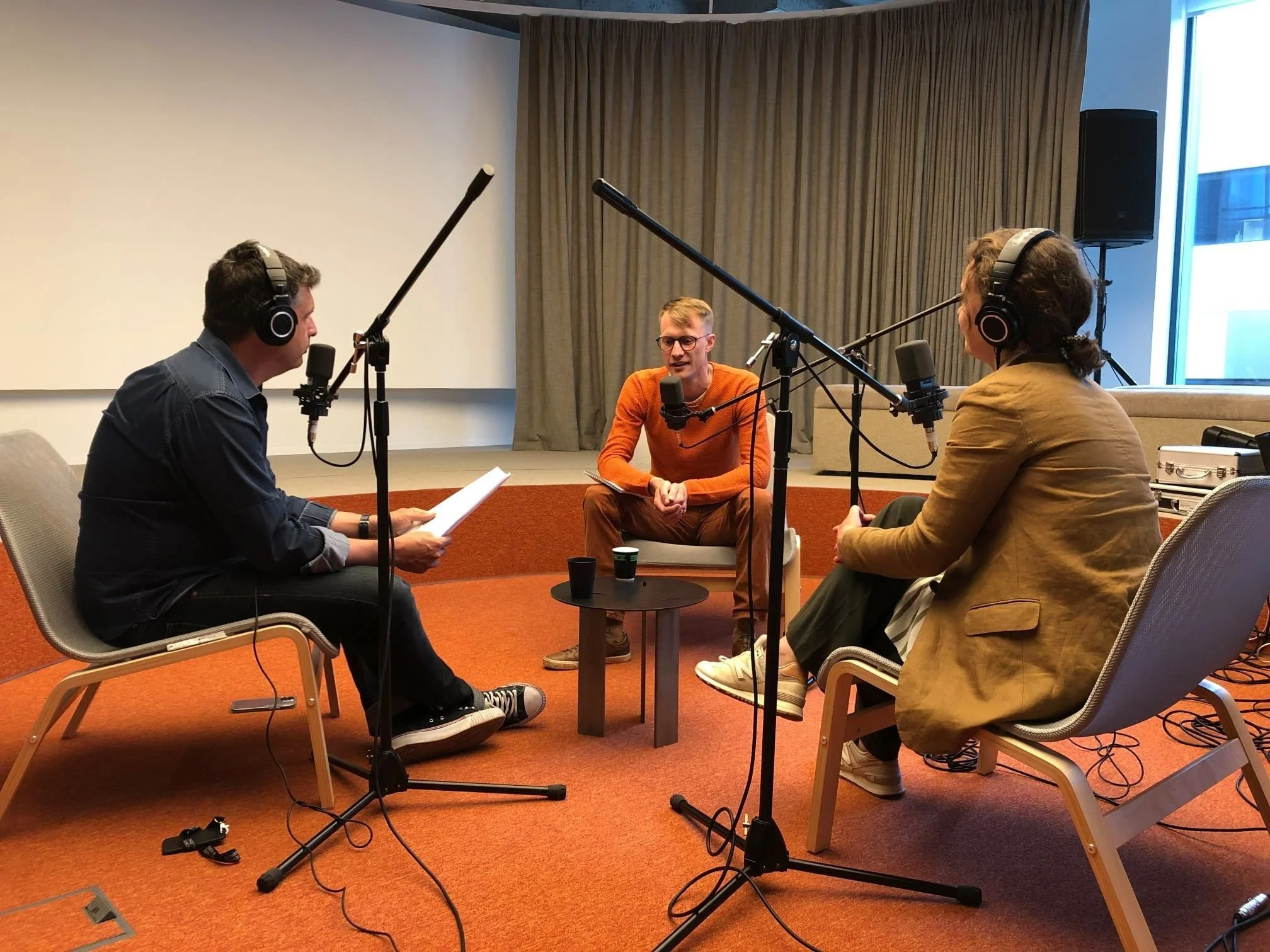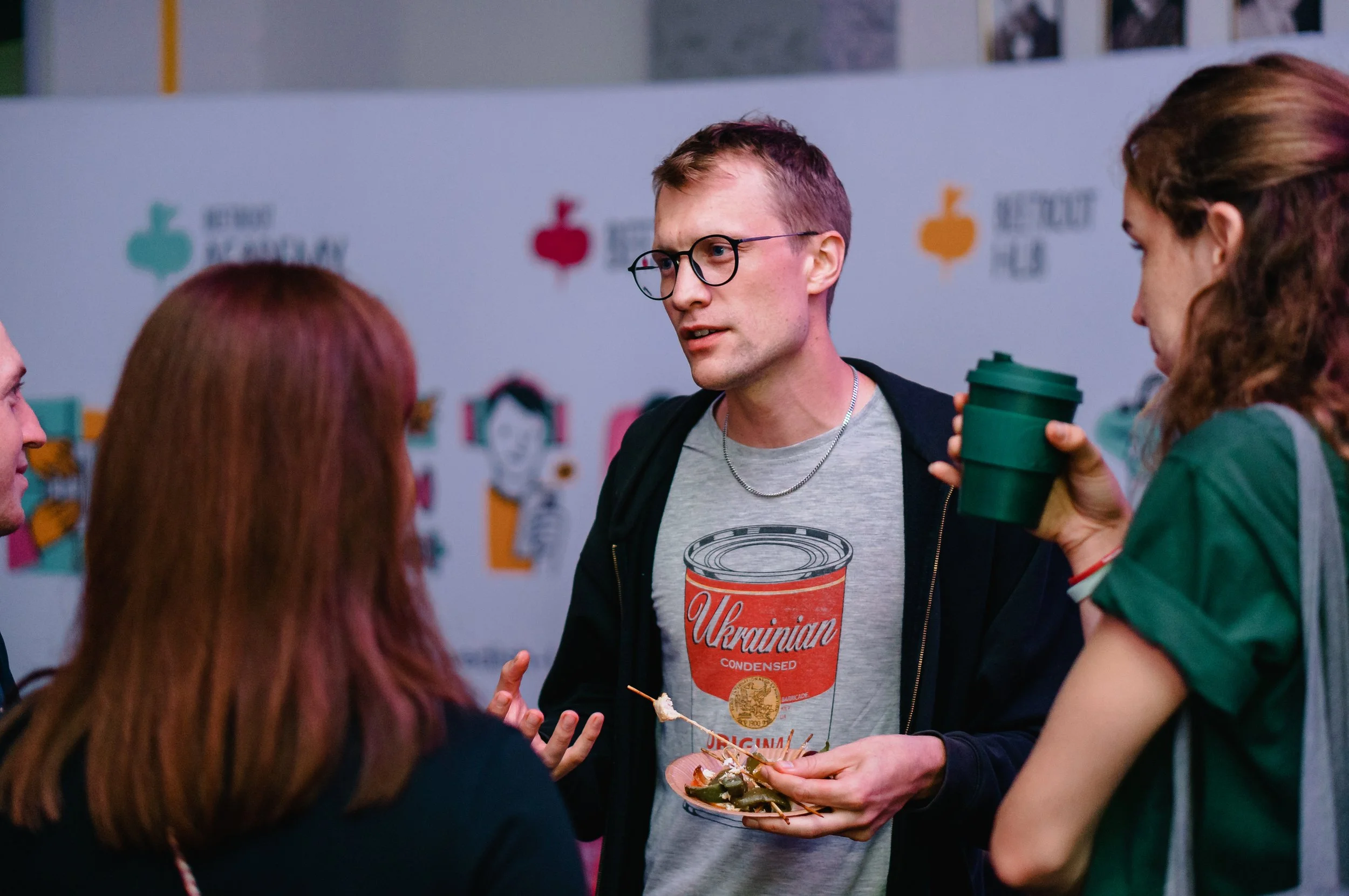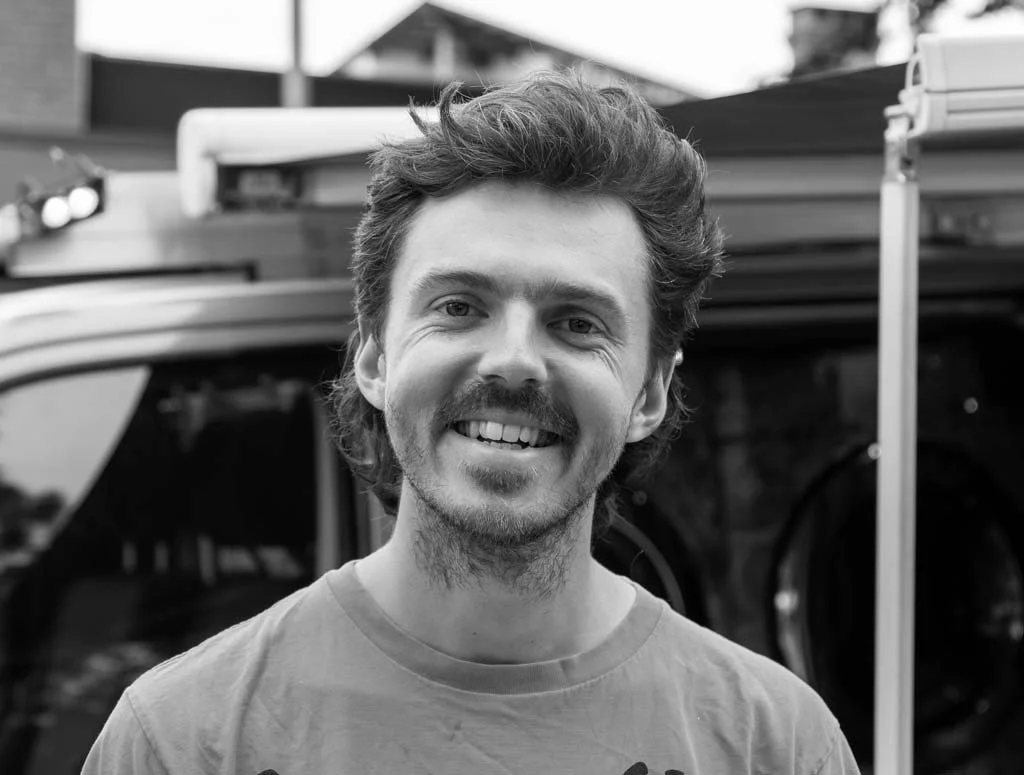Andreas Flodstrom On The Ukrainian Tech For Good Ecosystem Adapting To Humanitarian Challenges
Andreas is a social entrepreneur & CEO; Entrepreneur Of The Year in Sweden (2018), Sollos Pris Finalist (2022).
With his peer Gustav Henman, he co-founded Beetroot, an international impact-driven ecosystem operating in Tech and Education. Andreas is a frequent speaker and media commentator on technology topics, creating sustainable development teams, social entrepreneurship, and continuous learning.
Andreas discusses how technology focused education can create a sustainable intergenerational impact, and the Ukrainian start-up ecosystems approach to grassroots humanitarian relief.
Highlights from the interview (listen to the podcast for full details)
[Sarah Ripper] - To start off, can you share a little bit about your background and what led you to where you are today?
[Andreas Flodstrom] - I'm originally Swedish, but I've been living mostly in Ukraine for the last eleven years. Long story short, me and a friend from university studied engineering together, and then decided we wanted to do something impactful. We wanted to do it in Eastern Europe but didn't have a clear plan of what exactly we were going to do. We had this idea we want to do something good, and we had learned at the time the Russian language. We were traveling around in Russia, Belarus, Ukraine, and Moldova looking for opportunities. We were driving around in an old Soviet car. Once we arrived in Kiev, Ukraine, we felt like this is a special place. Ukraine has a lot of potential and openness towards us. Long story short, we decided to start where we can by building tech for good.
Beetroot today is a tech ecosystem with a couple of different angles of business. We build software for hundreds of companies all around the world in climate tech, ed tech, e-health and so on.
We have around 450 people doing that, and in 2014 (a few years after we started) we set up Beetroot Academy, where we essentially help people having a great career in tech by teaching them a quick and practical skill set for a career in tech. We've done that now with around 11,000 people, most of them in Ukraine, but we are also growing now in other countries. Those are the two main parts of the ecosystem as of today. Before the full-scale war, we also used to run a tech hub in Mariupol. For those who follow the news, you would know Mariupol is pretty much a destroyed city as of today. We were running our tech hub together with the city to create hundreds of impactful projects and therein transform the city. We wanted it to progress from being this sort of old Soviet industrial city to a more modern economy, and that was happening. The fourth leg of the ecosystem started since the full-scale invasion of Ukraine. We started an aid fund where we use our network of people and resources to help manage and provide humanitarian help. The through line is we use tech as an ecosystem for long term sustainable impact.
In terms of the Beetroot Academy, who are your students typically?
It is a broad base, but it's mainly people who want to enter the tech industry. Why is that important and impactful? In Ukraine, as we started, the average income in tech was around five times bigger than the average income in the country. This means that pretty much joining tech meant you could quickly join a Western standard middle class. We provide training to people of very different backgrounds. Of the two of our targets, the first have people outside the main tech hubs; around 60% of our students are not from any major tech cities, but instead smaller cities or even rural areas. Our second target is to get more women into tech, and that's been with us from the very start. As of today, around 60% of our graduates are women. The main goal with our graduates is getting the jobs, and most of our students around (70-75%) start a job in the tech industry. That's a substantial amount of people who have a big impact not only in their own life, but also in their local community. They get the economy going, and it's also not only financial, but of course it's about connecting to the global world and mindset. Those are really the core ideas of the Academy, and those needs are not only in Ukraine, but in a lot of different countries. This includes a lot of developing countries but also in more developed countries.
Our mission or vision with the academy is to give opportunities to hundreds of thousands and maybe millions of people within the next 10 years. That's going to be crucial considering how quickly the labour market is changing and all the challenges we have in front of us.
People are going to need a lot of new skill sets we don't even know about today. We don’t know what we will teach in five years to ten years from now, so it's about being agile and able to stay on top of the trends and quickly teach those to people who want to work in the industry.
As a sitting expert member of the Ukrainian Startup Fund, can you tell us more about what's happening on the ground in Ukraine and the work you're doing?
We support 50 different projects which impact roughly 8,000 people. The humanitarian projects can be anything. In the beginning of the war, it was shelter, support, logistics, getting medicine to the right hospitals and emergency support after the dam was blown up in Kherson. Even recently it has been helping people get electricity in the Winter. Framed long term, there are restoring efforts both mentally and physically, including various clean-up and rebuilding projects in the occupied territories. There has been work in children camps in the mountains for kids who have been under occupation or in difficult situations.
In the horror of everything happening, the cool thing is the way Ukrainians are uniting and fighting as a community. That was felt all over from day one. We are tagging along with that and doing what we can, a lot of it is just connecting the dots and helping support. We help people from abroad. For example, people from Sweden or other countries may say, "we want to support you, but we don't know how to do it efficiently. We would like to help to distribute our resources to the grassroots movement who are start-up minded and able to quickly adapt." That's the whole humanitarian side of things. Of course, there's also an aspect supporting the actual military, which is interesting because we are an impact company at our core. In the past we used to say we were never going to work with military. Now it's suddenly what keeps us being able to live a free life in Ukraine, so we changed on that. In another aspect, we do aid activities because we can, but our main activities are as a software company and an education provider. The cool thing is the software industry in Ukraine has been able to keep going, and even grown a little bit since the start of the full-scale invasion. That's something quite extraordinary, and the number of students we have in the Academy has been growing. You could say that despite full scale invasion, throughout an actual war with rockets flying, people have managed to think about the future and take on education. We had more than 3000 students last year in Ukraine reskill themselves as tech specialists. To be honest, I haven't been super active in the Ukrainian Startup Fund for the last year. What I can say for sure is the start-up industry keeps producing cool things and keeps working forward. Generally Ukrainian start-ups (and there are a couple of already successful global ones such as Grammarly and Preply) all globally focused. One thing now, with the existential challenge we are heading towards is a lot of activities are related to protecting the country. For example, that's not just for Ukrainian Startup Fund, but we have one of our team members who in his spare time has developed an app. Basically you can log in with your Ukrainian credentials if you are in Ukrainian territory, and if you see a rocket, drone or something flying in the sky that shouldn't be there, you can report it directly to the armed forces. They are crowdsourcing information to shoot down what shouldn't be there.
As a professional in the tech for good space, what are some of the challenges, opportunities, and possibilities you see lying ahead of us?
It's the million-dollar question. I don't know if I have a better answer than anyone else on this question. Of course, there's a lot going on in the spaces of AI, but also in the space of climate tech and looking at the main challenges. We focus our energy on climate tech, e-health and ed tech. These are spaces where we see there will be tremendous challenges ahead. AI comes in as a tool in all those spaces. But for now, it looks more like a greater opportunity than a risk. We need of course to be very conscious about how we use these powerful tools.
One of the challenges is things are changing quickly, and it feels like we’re accelerating. On the one hand, that's an opportunity to achieve positive change fast, but there’s also a risk of people being left behind. One of Beetroot Academy’s focuses is to quickly teach new skill sets, so people can adapt quickly to emerging labour market challenges.
That's for me one of the obstacles; it feels like everything is exponentially moving faster, which is both cool and risky.
What books or resources would you recommend to our listeners?
I've been reading not so much in the last year because I've been reading news about war for one or two hours daily. In general, I think there are a lot of interesting books on how work environments are changing and how self-management or impact driven companies are adopting these. Of course, one of my old favourites is Reinventing Organizations, but that's a quite idealistic viewpoint.
What inspiring projects or initiatives have you come across recently which you feel are creating profound change?
What I see now so many cool projects using AI in education. There are so many of them I couldn't just mention one of them! Hopefully Beetroot Academy is one of them, but we're still working on many features.
Are there any resources you would recommend for people to become more informed about what is happening in Ukraine?
If you are an English speaker and want to keep up to date with the main occurrences, I would recommend Kyiv Independent. It is partly run by friends of mine, and it is a very up to date news source. If you look there daily, you will have a proper perspective on things.
Initiatives, Resources and people mentioned on the podcast
Recommended books
Reinventing Organizations
Kyiv Independent








